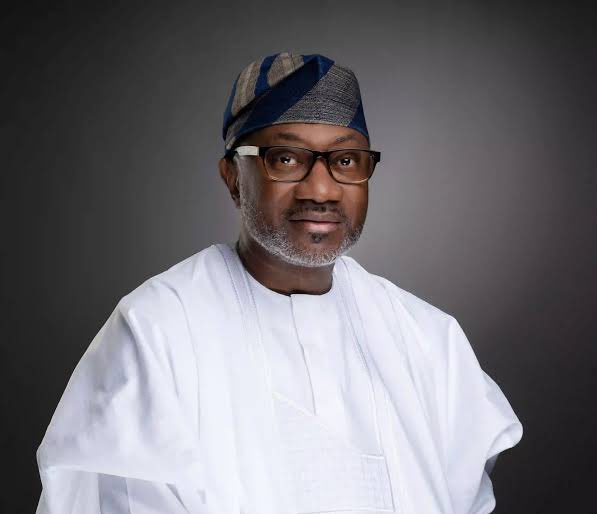A brewing crisis at First Bank of Nigeria Holdings Plc. has taken a dramatic turn as a powerful group of shareholders, holding 10 percent of the company’s shares, have moved to challenge the leadership of Chairman Femi Otedola and Non-Executive Director, Julius B. Omodayo-Owotuga. In a formal request submitted yesterday, the shareholders have invoked Section 215(1) of the Companies and Allied Matters Act (CAMA), demanding an Extra-Ordinary General Meeting (EGM) to discuss the fate of the bank’s top leadership.
The shareholders allege that Otedola’s acquisition of significant shares in FirstBank, with the help of former Central Bank of Nigeria (CBN) Governor Godwin Emefiele, has led to instability within the institution. According to the group, this alliance resulted in Otedola’s emergence as Chairman, but they claim that since his appointment, the bank has been on a downward spiral. The shareholders accuse Otedola of engaging in power struggles, sidelining key executives, and undermining corporate governance.
One of the central grievances revolves around Otedola’s tactics to consolidate power within the bank. A source close to the matter disclosed, “Otedola’s method of control is clear. He has appointed loyalists to top positions, including Omodayo-Owotuga, who operates within his inner circle. The bank’s leadership has been reshaped to serve his interests, not the shareholders or customers.”
The battle for control of the bank has its roots in a series of controversial decisions by Otedola, including the ousting of top executives. According to shareholders, after taking the helm, Otedola moved swiftly to remove former CEO Dr. Adesola Adeduntan and Chairman Tunde Hassan-Odukale. These moves were seen as attempts to create a more favorable power structure under his leadership.
Otedola’s actions have not stopped there. The shareholders have expressed concern over his interference in hiring decisions, such as the appointment of Olusegun Alebiosu as CEO despite his subpar performance in interviews conducted by a global recruitment agency. Alebiosu, who came last in the interview process, was chosen in favor of Tosin Adewuyi, who had secured the highest ranking. The shareholders allege that Alebiosu’s loyalty to Otedola is unwavering, and that the appointment was part of a broader strategy to solidify Otedola’s grip on the bank.
“It’s a classic case of corporate manipulation. Otedola’s tactics are designed to maintain control of the bank at all costs, even if it means sidelining qualified candidates,” one shareholder remarked. “His interference in the operations of the bank is alarming.”
In addition to these allegations, the group points to Otedola’s alleged involvement in a series of executive dismissals, including the removal of key staff members such as Folake Ani-Mumuney, Group Head of Marketing. According to insiders, Ani-Mumuney’s removal followed her role in organizing a send-off party for the former CEO, which Otedola reportedly took issue with. The shareholders have questioned why a non-executive chairman would intervene in such operational matters.
As tensions rise, the question of Otedola’s influence over the bank’s finances has also come under scrutiny. Sources within the bank have revealed that Otedola has secured a loan of up to $50 million from the African Export-Import Bank (Afreximbank), raising concerns over his increasing influence over FirstBank’s finances. This loan is reportedly aimed at helping him strengthen his position during the bank’s upcoming private placement of N360 billion in shares.
“There is growing fear that Otedola’s control could lead to the bank being run like his personal asset, without regard for other shareholders or proper corporate governance,” a source said.
The shareholders’ calls for an EGM have also centered around the proposed private placement of shares, which they believe would grant Otedola even more power. They are pushing for a public offer or a rights issue, arguing that a private placement would allow Otedola to dominate the bank’s shareholding structure. “Otedola’s preference for private placement is seen as a deliberate attempt to manipulate the ownership structure in his favor,” another shareholder explained.
Meanwhile, FirstBank’s recent financial reports have added fuel to the fire. According to the bank’s audited accounts for 2023, Otedola holds the largest single stake in the institution, with 9.41 percent of the shares. However, his exact stake remains unclear due to his recent aggressive share acquisitions. This has sparked a fierce legal dispute over the true ownership of the bank’s shares, with Barbican Capital, affiliated with the Honeywell Group, claiming to be the largest shareholder, holding 15.01 percent. Barbican Capital has even taken legal action against FBN Holdings, accusing the bank of misrepresenting its shareholding in its financial statements.
In a related development, FBN Holdings recently laid off over 100 senior staff members in what the bank has described as a corporate restructuring effort. However, many believe the layoffs are part of Otedola’s broader agenda to bring in his own loyalists. This massive shakeup has been met with backlash from both employees and shareholders, who feel that the bank’s leadership is being hijacked for personal gain.
As FirstBank grapples with these internal power struggles, the regulatory bodies, including the Securities and Exchange Commission (SEC) and the Central Bank of Nigeria (CBN), have yet to make any public statements regarding the ongoing crisis. The demand for an EGM has put the bank’s future under intense scrutiny, and the shareholders are now waiting to see how the situation will unfold.
One thing is clear: the battle for control of FirstBank is far from over, and its resolution could have far-reaching implications for the Nigerian banking sector. With Otedola and Omodayo-Owotuga’s positions hanging in the balance, the coming weeks will be crucial in determining the future of one of Nigeria’s most prominent financial institutions.

